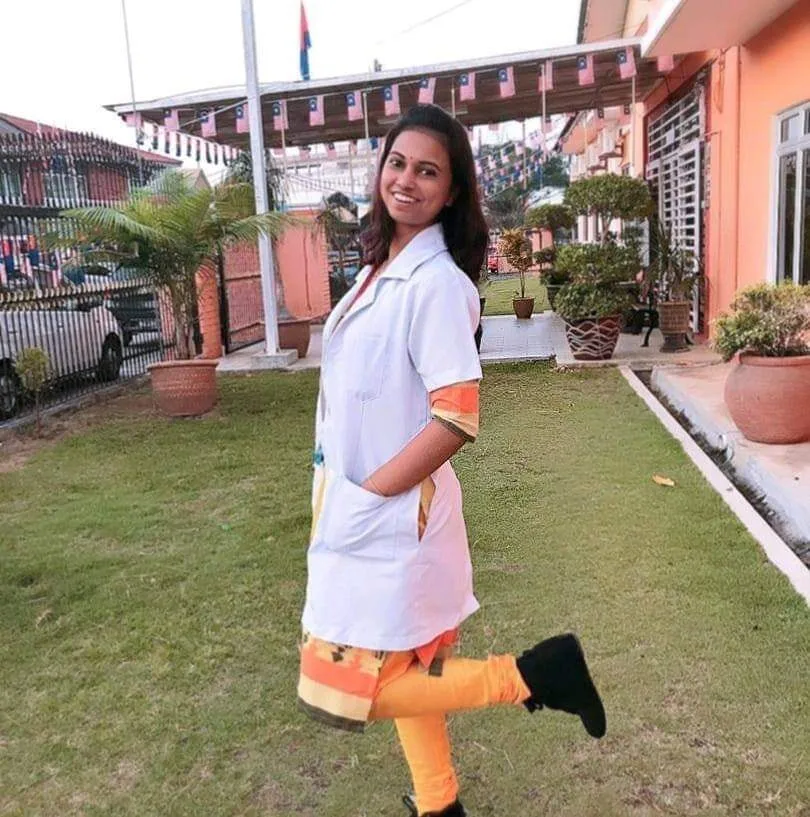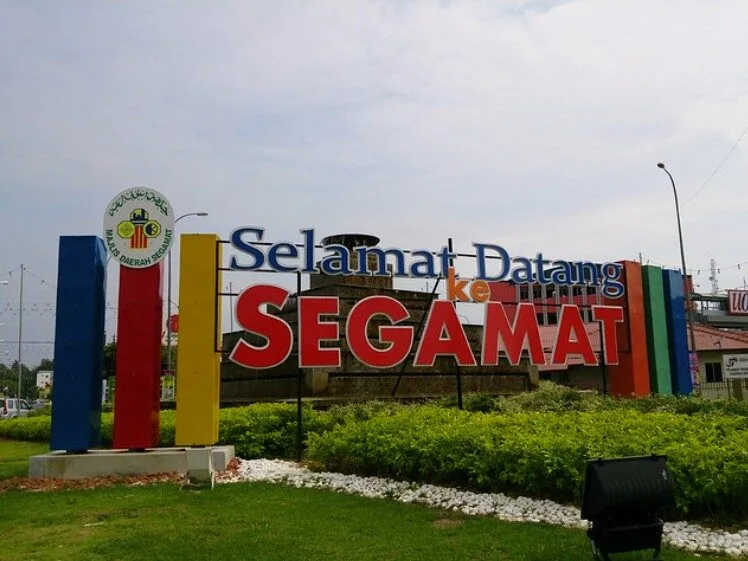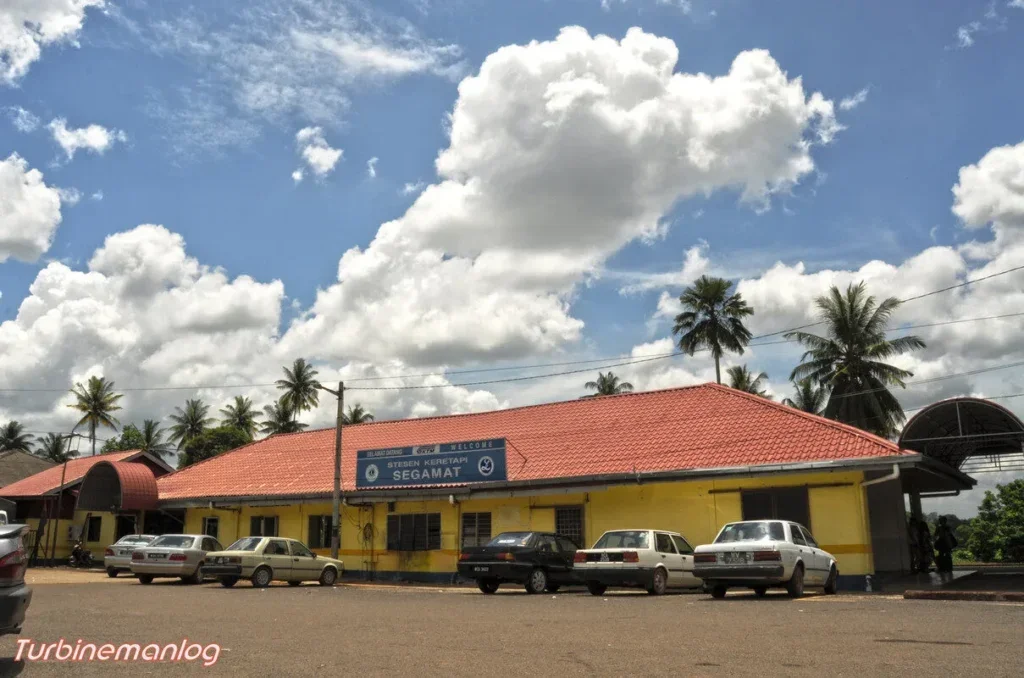This exclusive story is brought to you by In Real Life Malaysia – For sharing, please credit us and add a backlink. We value your kind acknowledgement of our editors in sourcing and conducting interviews.

This story is about a M’sian pharmacist who, despite the challenges of a saturated job market, carved out a fulfilling and financially stable career in a rural town—proving that success doesn’t always follow a straight path, nor does it have to be found in the hustle of a big city.
Ten years ago, pharmacists in Malaysia had far fewer opportunities. The industry wasn’t booming, and many pharmacy graduates struggled to find relevant jobs. Fast forward to today, and the demand for pharmacists has surged—especially post-COVID. But while many choose to work in cities, one pharmacist has found that life in a rural town not only offers a slower pace but also significant financial advantages.
A Hard-Won Career in Pharmacy

Photo courtesy of the pharmacist In Real Life spoke to
When the pharmacist we spoke to graduated in 2015, the job market was flooded with pharmacists, and starting salaries in pharmacy were slashed to RM2,500. With limited options, she pivoted—first working as a part-time clinic assistant while waiting for her government placement, then as an optometrist’s assistant.
But she never gave up on her dream. After completing her 2-year housemanship, with her first posting in Hospital Segamat and her second in Johor Bahru, she finally was absorbed as a permanent government staff in 2019.
Today, she works in a government clinic in Segamat, a small town in the heart of Johor, 130km from Johor Bahru. While the salary for government pharmacists is standardized across Malaysia, allowances differ between urban and rural placements. And in Segamat, the cost of living is significantly lower than in larger cities, allowing her to save up to RM1,000 more each month compared to her peers in Johor Bahru or Kuala Lumpur.
Lower Rent, More Savings

Photo courtesy of Turbinemanlog
One of the biggest financial advantages of working in a rural town is housing. In Segamat, she rents a bedroom in a four-bedroom single storey house for just RM250 a month. Compare this to Johor Bahru, where a similar room would cost RM700, or Kuala Lumpur, where prices can be even higher. Everyday expenses—like food and utilities—are also much more affordable, freeing up more of her salary for savings and personal goals.
“One plate of chicken rice is RM5.50, while a plate of wan tan mee is RM5.00,” she shared. “Whereas in KL, chicken rice and wan tan mee is between RM8-10.”
Challenges of Serving a Rural Community

Photo courtesy of Turbinemanlog
While the financial perks are undeniable, working in a rural clinic comes with unique challenges. Many of her patients are elderly Chinese residents who are deeply rooted in their mother tongue and cannot speak Malay. “I sometimes have to wait for my boss to translate prescriptions because they cannot understand Malay,” she shares.
Providing medication instruction accurately is crucial. However, language barriers add an extra layer of difficulty to her work. Due to that, she and her colleagues have been learning Mandarin to ensure her patients understand exactly how to take their medications.
More Free Time, More Hobbies

One unexpected benefit of working in Segamat is the lack of traffic jams. While her working hours are standard for pharmacists, starting at 8am and finishing at 5pm, she enjoys a more balanced lifestyle as she lives a mere 15-minute drive from her workplace.
“I’ve been learning Turkish, playing the guitar, running marathons, sewing, developing my own brand of perfume, and classical Indian singing,” she says. “It’s nice to have time for things outside of work.” In contrast, many city-based pharmacists spend up to an hour and a half commuting daily, leaving little time for personal passions.
A Comfortable but Modest Salary
The average pharmacist salary in Malaysia ranges between RM6,000 to RM8,000 in both the public and private sectors. Overseas, pharmacists can earn around RM10,000, though that doesn’t factor in cost of living or exchange rates. While pharmacy isn’t the highest-paying profession, it does offer stability and a comfortable life. “I’m not earning a fortune, but I’m able to live well and save money,” she explains.
Lessons from a Non-Linear Career Path
Her journey serves as a reminder that career paths aren’t always straightforward. The pharmacy job market fluctuated, and she had to take detours before securing a position in her chosen field. But persistence paid off. “If you’re passionate about something, you’ll find your way back to it eventually,” she says.
For those considering a career in pharmacy—or any field—it’s important to stay adaptable. The industry has grown significantly in the past decade, and opportunities continue to expand. And as this pharmacist’s story proves, sometimes stepping away from the city life can lead to unexpected financial and personal rewards.
Have a story to tell?
Submit your story to us at ym.efillaerni@olleh and you may be featured on In Real Life Malaysia.
Read also:
This Young M’sian Woman Quit Her 9-to-5 Job To Embrace Slow Living in Her Kampung – In Real Life
This Young M’sian Woman Quit Her 9-to-5 Job To Embrace Slow Living in Her Kampung
More from Real People
‘A RM100 fee cost a company 5 years of revenue’ shares M’sian
This story is about a Malaysian who learned that bureaucracy can be defeated simply by not arguing with it.A billing …
‘I quiet-quit, upskilled, and tripled my salary,’ shares M’sian engineer
This story is about a Malaysian who learned that loyalty without leverage leads nowhere in the corporate world.After years of …
‘I did everything right, and it still wasn’t enough’ shares M’sian graduate
This story is about a Malaysian graduate navigating big dreams in a job market where a degree no longer guarantees …















